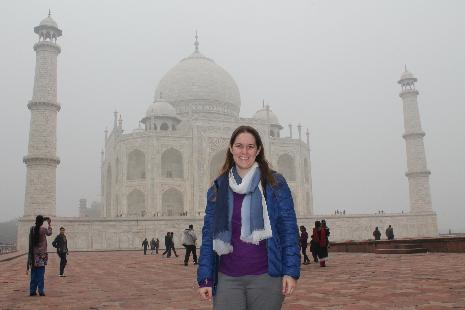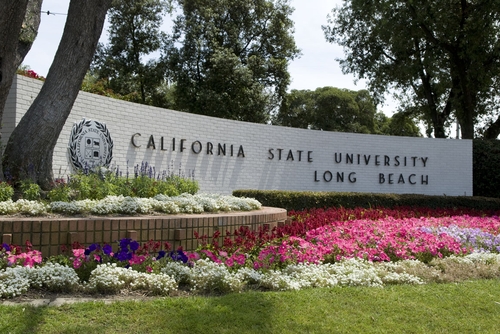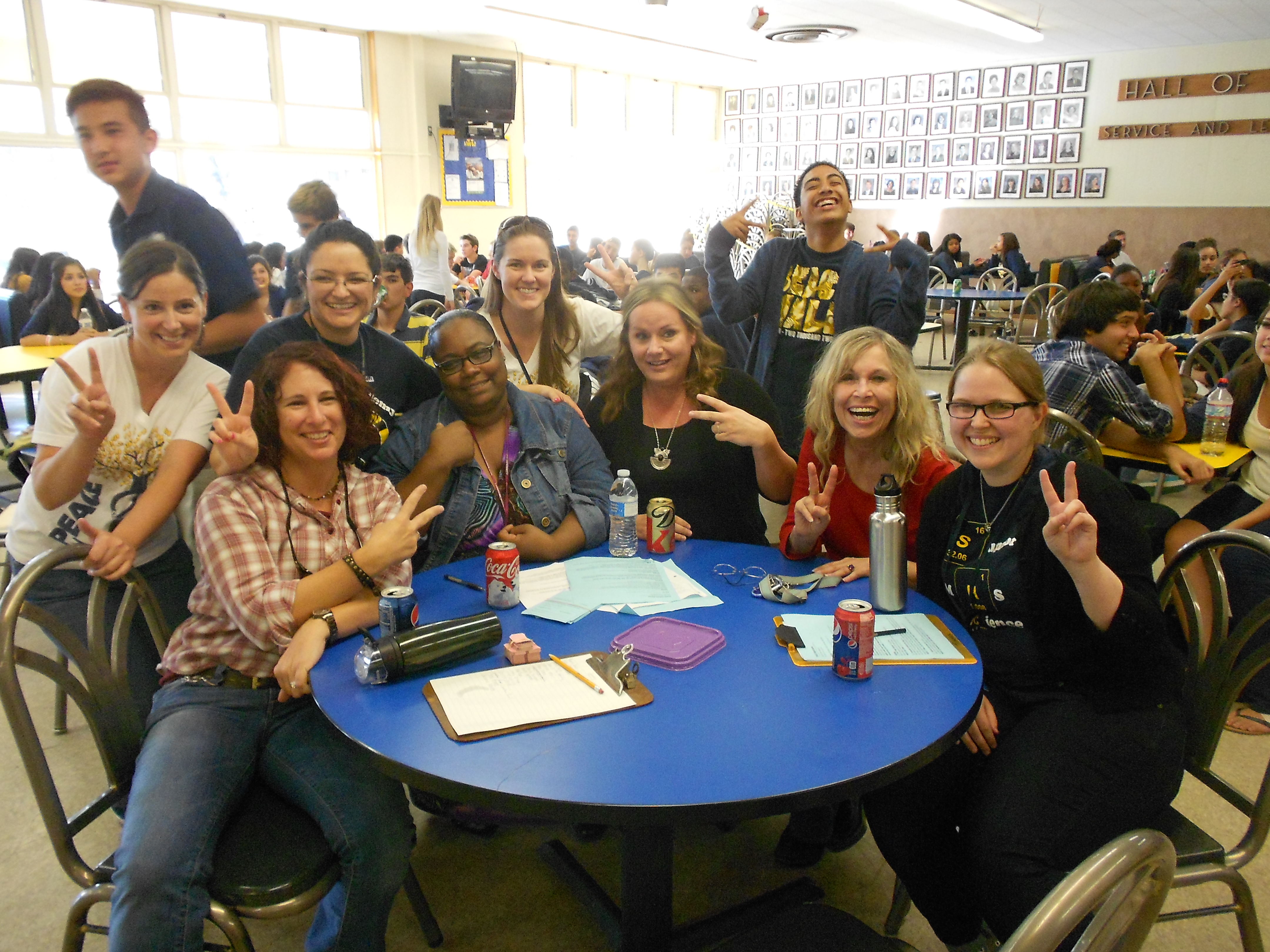
"No one is born hating another person because of the color of his skin, or his background, or his religion.
People must learn to hate, and if they can learn to hate, they can learn to love,
for love comes more naturally to the human heart than its opposite."
-Nelson Mandela
I grew up in an affluent, suburban community in Long Beach with my younger brother and our happily-married parents. I remember my childhood as happy and sheltered. We had frequent weekend outings to parks, beaches, libraries, and museums. As a child, I loved going to the main library in Downtown Long Beach. I was excited to pick out a pile of books and take them home for free, and then go back a week later to get even more! In the summers, we went on fun family vacations, and my brother and I attended enrichment programs so that we would not be sitting at home bored all day. I am thankful for these early opportunities because as an adult I value travel and experiences more than material possessions.
Our parents taught us to treat others with respect and to practice “random acts of kindness.” The expectation was that we would volunteer to help others in any way we could, and to show kindness even when others were being mean or inconsiderate. Whenever my brother and I received new toys or clothes, we were encouraged to donate the ones we no longer used to children who really needed them. I assumed that all families taught these valuable lessons, so the reality of intolerance and injustice in the world was a shock to me growing up.
Overcoming Challenges
I was very fortunate to have the privilege of growing up in a white, middle class, two-parent household in a safe suburban neighborhood. But I still struggled to fit in at school because I was precocious and painfully shy as a child. Sometimes my teachers just did not know what to do with me. In first grade, I was told that I could not write in cursive because we were “not supposed to learn that until third grade!” From kindergarten through second grade, I attended a different school each year as my parents struggled to find a supportive learning environment for me.
My social challenges were compounded by the fact that I was teased and harassed by my classmates, even by girls whom I considered to be my friends. Countless times, I came home crying because students made fun of me for the clothes I wore, for being smart, or for no particular reason at all. When I complained, my teachers rarely took any real action to stop it, aside from moving my seat or telling the bullies to “be nice.” In high school, the teasing progressed to physical harassment from boys. In one instance, a male classmate put me in a chokehold in the classroom (more to assert his dominance than to cause pain), and our female teacher responded with a joke in an attempt to diffuse the situation. The student received no consequences or even a warning for his behavior. I was incredibly frustrated by the lack of discipline for bullying and physical harassment because I admired my teachers and looked up to them as authority figures.
For grades 7-12, I participated in specialized programs for gifted and talented students. Although this environment helped me thrive intellectually, I continued to struggle socially and emotionally. Starting a new middle school in seventh grade was very rough because my classmates had already attended the school for a year and had formed their tight cliques. And even in the accelerated programs, my peers teased me for being a “nerd.” I was a perfectionist and I put a lot of pressure on myself to be the best academically. In high school, nearly all of my classes were honors or AP, and I was under such constant stress that I hit a wall. I remember realizing in eleventh grade that something was wrong-- I lost that inner drive, and I felt numb, rundown, uninspired, overwhelmed. My mother is a nurse and my father is a family therapist, so as soon as I mentioned what I was feeling, they immediately took me to a psychologist for evaluation. I was diagnosed with minor depression and generalized anxiety and put on medication for a year. Thankfully, my symptoms never progressed to a severe stage, and over time I learned how to manage these conditions.
Finding My Place and Purpose
Despite my social and emotional challenges, I loved learning and enjoyed going to school. I was blessed to have several amazing teachers who made me feel accepted and valued, and inspired my creativity and my curiosity. By the time I was in third grade, I knew that I wanted to become a teacher. It seemed like the perfect job to combine my intellectual talents with my desire to help others. I knew that my peers did not have the same passion for school that I had, and I wanted to help children develop a lifelong love for learning.

After high school, I attended California State University- Long Beach, where several classes helped shape my adult identity and shed the insecurities that plagued me as an adolescent. In my freshman year, I took a public speaking class that absolutely terrified me. I still remember the intense anxiety that I felt before each speech, but I gradually improved over the semester and eventually became more confident about speaking in front of an audience. I cannot imagine how challenging my student teaching semester would have been without this public experience! In my sophomore year, I took a women’s history class, which helped me develop the vocabulary to explain the gender stereotypes and sexism I had experienced in my own life. It was empowering to learn about the role that women played in every major event in our country’s history, and it was equally frustrating to learn just how deep patriarchy runs. I imagine that it must be a similar experience for students of color who have the opportunity to take ethnic studies classes to understand their own heritage and history for the first time.
In college, I also learned about the power of small learning communities. At my summer orientation, I joined a program called Learning Alliance, which created small cohorts within the huge freshman class. Our cohorts took one “introduction to the university” course and four general education courses together during our first year. We also had faculty advisers who met with us one on one, and peer mentors who helped us navigate college life. In my junior year, I completed the intensive peer mentorship training, which included educational theory, counseling, leadership, teambuilding, lesson planning, and public speaking. And I enjoyed spending my last two years giving back to the program by serving as a peer mentor to new students. This was by far the most supportive, inclusive, empowering educational environment I have ever experienced. Thanks to the Learning Alliance, I loved college and I was well-prepared for my future career before I even started my credential program. I strongly believe that well-designed small learning communities can transform our K-12 public schools and engage our struggling students.
Career Path and Professional Plans
For the past nine years, I have taught tenth grade Modern World History and AP World History at Millikan High School in Long Beach. This was the first teaching position I applied for after college, and it has proven to be a great fit. I work in a small learning community (SLC) called the PEACE Academy, which focuses on leadership and collaboration, social justice, and public service. The cornerstone of our SLC’s mission is to help students discover their unique voice and learn how to use it to have a positive impact on their community, on the local or global level. I love teaching world history with a social justice focus because it helps students develop respect for all cultures and belief systems, and it prepares them for their role as active global citizens.

As a teacher, I am committed to being an advocate for students who are dealing with bullying and other socio-emotional conflicts. Given my own experience with anxiety and depression, I often notice the symptoms in my students before their own parents realize that something is wrong. My personal struggles have helped me to understand the challenges my students are facing, particularly the students who are experiencing the stress of AP courses for the first time.
Until last June, I spent my whole life in Long Beach-- I have not lived, worked, or attended school anywhere else. When I was ready to start graduate school, I intentionally did not apply to Cal State Long Beach because I knew this was my opportunity to break out of my comfort zone and build contacts in a new community. Attending PLI at UCLA has been an eye-opening experience. It was difficult at first to learn that the colorblindness I grew up with is not progressive, instead it actually perpetuates racism by discrediting conversations about race that could challenge white dominance. I am so thankful for this enlightening journey because the last thing I want is for my lack of awareness to cause harm to others.
Professionally, I hope to find a leadership position related to curriculum and instruction. I am particularly interested in leading professional development, creating curriculum, supporting pre-service and novice teachers, and designing strategies to meet the needs of non-traditional AP students. My training in PLI has given me the vocabulary, theoretical frameworks, and practical strategies that I need to be a social justice advocate for students (and teachers) who are experiencing marginalization in our urban schools.